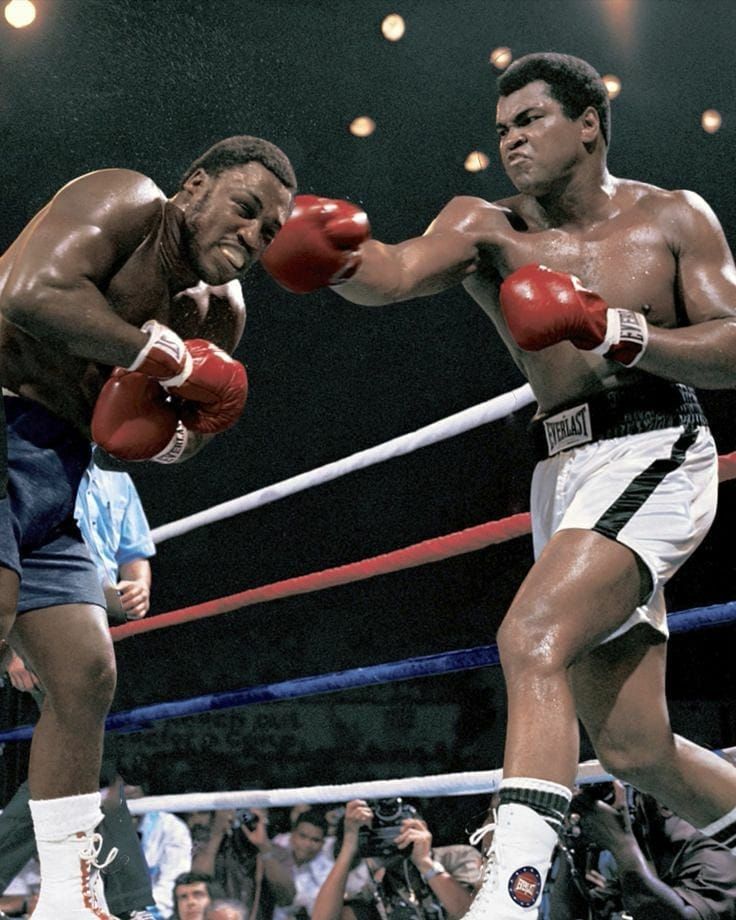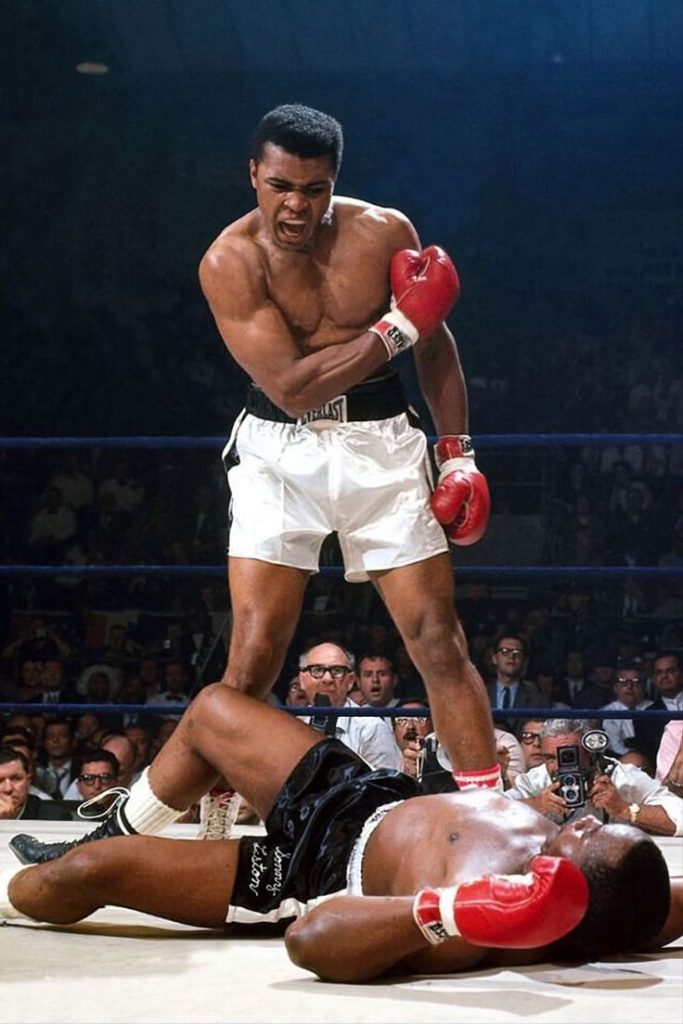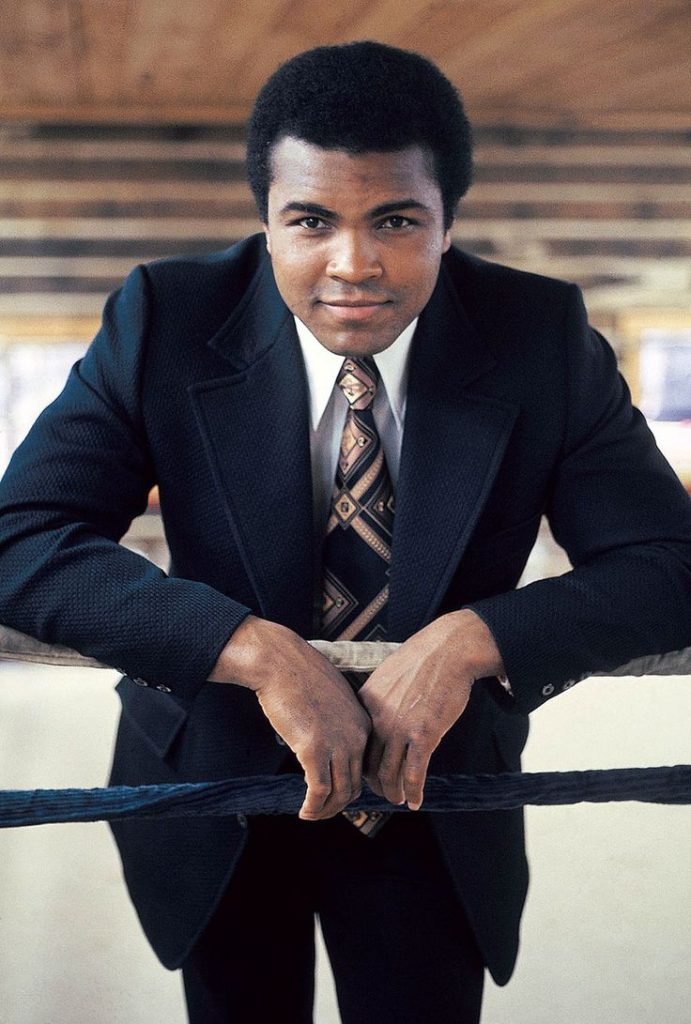Muhammad Ali: The Legendary Journey of The Greatest
Muhammad Ali, born Cassius Marcellus Clay Jr. on January 17, 1942, in Louisville, Kentucky, was more than just a boxer; he was a cultural icon, a charismatic personality, and a symbol of resilience and determination. Ali’s journey from an ambitious young boxer to the global legend known as “The Greatest” is a tale of triumph, challenges, and the indomitable human spirit.
Early Years and Olympic Glory
Muhammad Ali’s journey began in the vibrant streets of Louisville, where he discovered his passion for boxing at the tender age of 12. His remarkable talent quickly became evident, and under the guidance of trainer Joe Martin, young Cassius began his ascent in the boxing world.
In 1960, at the age of 18, Ali represented the United States at the Rome Olympics, where he won the gold medal in the light heavyweight division. This victory marked the beginning of a career that would not only redefine the sport of boxing but also transcend its boundaries.

“I am the greatest, I said that even before I knew I was.” – Muhammad Ali
Conversion to Islam and Controversial Stances
Shortly after winning the Olympic gold, Cassius Clay converted to Islam, adopting the name Muhammad Ali. His affiliation with the Nation of Islam and his outspoken views on racial inequality and social justice made him a controversial figure during a turbulent period in American history. Ali’s refusal to be drafted into the U.S. military during the Vietnam War, citing his religious beliefs and opposition to the war, led to his suspension from boxing and the stripping of his world heavyweight title.
Despite facing criticism and legal battles, Ali remained steadfast in his convictions, becoming a symbol of resistance against injustice. His famous quote, “I ain’t got no quarrel with them Viet Cong,” echoed his stance on the war and solidified his status as a political and cultural icon.
The Thrilla in Manila: Iconic Fights and Rivalries
Ali’s boxing career was defined by legendary matchups and fierce rivalries. One of the most iconic bouts in boxing history was the “Thrilla in Manila” on October 1, 1975, where Ali faced his nemesis, Joe Frazier, for the third and final time. The fight, held in scorching heat, pushed both fighters to their physical limits.
“It’s hard to be humble when you’re as great as I am.” – Muhammad Ali
The intense back-and-forth battle, coupled with Ali’s resilience and determination, culminated in Frazier’s corner stopping the fight before the 15th round. The “Thrilla in Manila” showcased Ali’s ability to endure adversity and solidified his place as one of the greatest boxers of all time.

The Rumble in the Jungle: Ali vs. Foreman
Another historic moment in Ali’s career was the “Rumble in the Jungle” on October 30, 1974, in Kinshasa, Zaire (now the Democratic Republic of Congo). Ali faced the heavily favored George Foreman, who was known for his devastating punching power. In a tactical masterclass, Ali employed his famous “rope-a-dope” strategy, absorbing Foreman’s punches while conserving his energy.
“Float like a butterfly, sting like a bee. The hands can’t hit what the eyes can’t see.” – Muhammad Ali
As the fight progressed, Ali seized the opportunity, unleashing a flurry of punches in the eighth round that ultimately led to Foreman’s defeat. The victory not only reclaimed Ali’s world heavyweight title but showcased his strategic brilliance inside the ring.
Legacy Beyond Boxing
Muhammad Ali’s impact extended far beyond the boxing ring. His charisma, wit, and larger-than-life personality made him a global ambassador for peace, equality, and understanding. Ali’s influence transcended racial and cultural boundaries, earning him admiration from people of all walks of life.
In 1996, Ali’s remarkable journey came full circle when he lit the Olympic cauldron at the Summer Games in Atlanta, a powerful symbol of reconciliation and unity. Despite the physical toll of Parkinson’s disease, Ali continued to inspire with his presence and humanitarian efforts until his passing on June 3, 2016.

Table: Muhammad Ali’s Major Achievements
| Year | Event | Achievement |
|---|---|---|
| 1960 | Rome Olympics | Gold Medal in Light Heavyweight Boxing |
| 1964 | Defeats Sonny Liston | Becomes the World Heavyweight Champion |
| 1971 | “Fight of the Century” vs. Joe Frazier | First Loss and Frazier Claims the Title |
| 1974 | “Rumble in the Jungle” vs. George Foreman | Regains the World Heavyweight Title |
| 1975 | “Thrilla in Manila” vs. Joe Frazier | Victory in the Third and Final Bout |
| 1996 | Atlanta Olympics | Lights the Olympic Cauldron |
The Ali Shuffle: A Dance of Success
Muhammad Ali’s unique boxing style, often accompanied by his famous “Ali shuffle,” combined speed, agility, and showmanship. His ability to “float like a butterfly, sting like a bee” showcased a level of finesse rarely seen in the heavyweight division. Beyond his physical prowess, Ali’s mental fortitude and psychological warfare tactics set him apart from his contemporaries.
“I’m not the greatest. I’m the double greatest. Not only do I knock ’em out, I pick the round.” – Muhammad Ali
The Lasting Impact on Popular Culture
Muhammad Ali’s influence on popular culture is immeasurable. His magnetic personality transcended the sports world, making him a fixture in movies, television, and advertising. Ali’s interviews were filled with memorable quotes that resonated far beyond the boxing community, becoming part of the global lexicon.
Ali’s charisma even led to his involvement in Hollywood, with appearances in films like “The Greatest” and “When We Were Kings,” which documented the “Rumble in the Jungle.” His larger-than-life persona made him a sought-after guest on talk shows, where his wit and humor captivated audiences.
Table: Muhammad Ali’s Famous Quotes
| Quote | Context |
|---|---|
| “I am the greatest, I said that even before I knew I was.” | Self-confidence and assertion |
| “It’s hard to be humble when you’re as great as I am.” | Humorous reflection on greatness |
| “Float like a butterfly, sting like a bee.” | Describing his boxing style |
| “The hands can’t hit what the eyes can’t see.” | Tactical insight into his strategy |
| “I’m not the greatest. I’m the double greatest.” | Emphasizing his dominance in the ring |
Conclusion
Muhammad Ali’s journey from a young, ambitious boxer in Louisville to the global legend known as “The Greatest” is a testament to the power of determination, resilience, and self-belief. Beyond his athletic achievements, Ali’s impact on civil rights, social justice, and global unity is a legacy that continues to inspire generations.
Reflecting on Muhammad Ali’s life and career brings to mind his boxing skills and more. He went beyond societal limits. Ali’s life is a beacon of hope. It shows us that greatness is about more than just winning. It’s about having an unyielding spirit. This spirit drives people to fight injustice and make a lasting impact on the world.
Frequently Asked Questions (FAQs) about Muhammad Ali
1. Who is Muhammad Ali?
Muhammad Ali, born Cassius Marcellus Clay Jr. on January 17, 1942, in Louisville, Kentucky, was a legendary American boxer, cultural icon, and activist. He is widely regarded as one of the greatest heavyweight boxers of all time.
2. What were Muhammad Ali’s significant achievements in boxing?
Muhammad Ali’s boxing career was marked by numerous achievements, including winning the Olympic gold medal in the light heavyweight division in 1960, defeating Sonny Liston to become the World Champion in 1964, and participating in historic bouts like the “Rumble in the Jungle” (1974) and the “Thrilla in Manila” (1975).
3. How did Muhammad Ali become a cultural icon?
Muhammad Ali was not only a skilled boxer but also a cultural icon. He was known for his charm, wit, and eloquence. Ali was also involved in civil rights. He converted to Islam. He took a strong stand against the Vietnam War. These actions made him a symbol of social and cultural change.
4. What is the significance of the “Rumble in the Jungle” and the “Thrilla in Manila”?
The “Rumble in the Jungle” (1974) against George Foreman and the “Thrilla in Manila” (1975) against Joe Frazier are two of the most iconic bouts in boxing history. Ali’s strategic brilliance in the former and his determination in the latter solidified his reputation as an extraordinary athlete.
5. How did Muhammad Ali contribute to civil rights and activism?
Muhammad Ali was a vocal advocate for civil rights and social justice. His refusal to be drafted into the military during the Vietnam War, based on religious and moral objections, showcased his commitment to his principles and made him a symbol of resistance.
6. What is the Muhammad Ali Center, and what does it represent?
The Muhammad Ali Center, located in Louisville, Kentucky, serves as a tribute to Ali’s humanitarian legacy. It promotes his core values, including respect, confidence, conviction, dedication, spirituality, and giving back. The center aims to inspire individuals to embody these principles in their lives.
7. How did Muhammad Ali handle challenges in later life, particularly with Parkinson’s disease?
In the latter part of his life, Muhammad Ali faced the challenges of Parkinson’s disease, likely exacerbated by the physical toll of his boxing career. Despite declining health, Ali remained active in philanthropy, using his platform to inspire and make a positive impact.
8. What are some enduring quotes from Muhammad Ali?
Muhammad Ali was known for his powerful and eloquent statements. One of his most famous quotes is “Float like a butterfly, sting like a bee,” which not only described his boxing style but also became a mantra for approaching life with confidence and agility.
9. How can I learn more about Muhammad Ali’s life and legacy?
To delve deeper into Muhammad Ali’s life and legacy, there are various documentaries, books, and online resources available. The Muhammad Ali Center in Louisville also offers a comprehensive experience for those interested in learning more about his impact on sports, culture, and society.
10. What is Muhammad Ali’s enduring legacy?
Muhammad Ali’s legacy is characterized by his indomitable spirit, commitment to principles, and contributions to sports, civil rights, and humanitarian causes. He remains an inspiration for generations, symbolizing the power of resilience, courage, and standing up for what one believes in.









